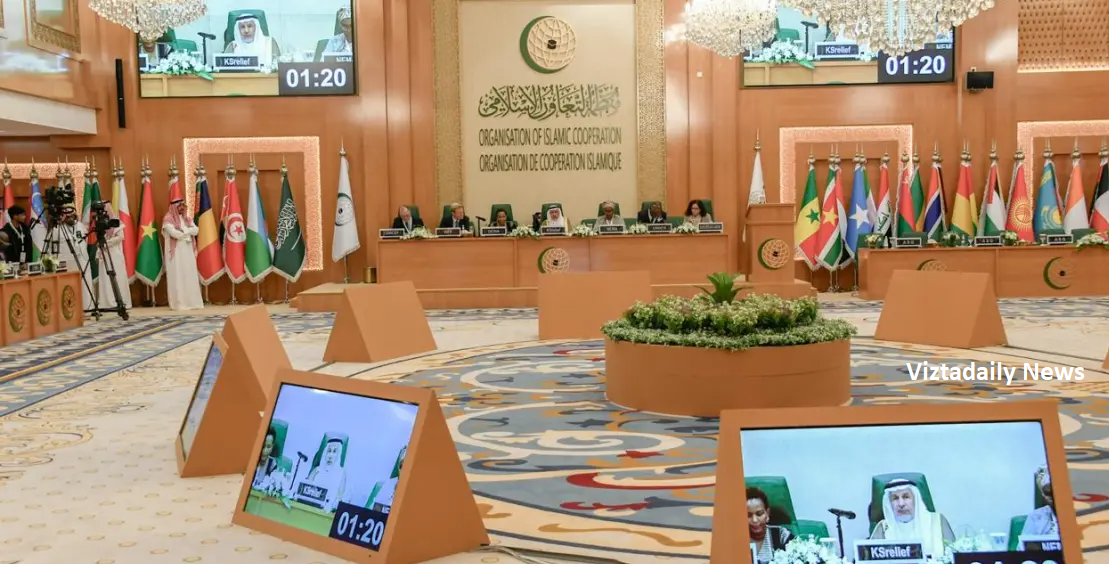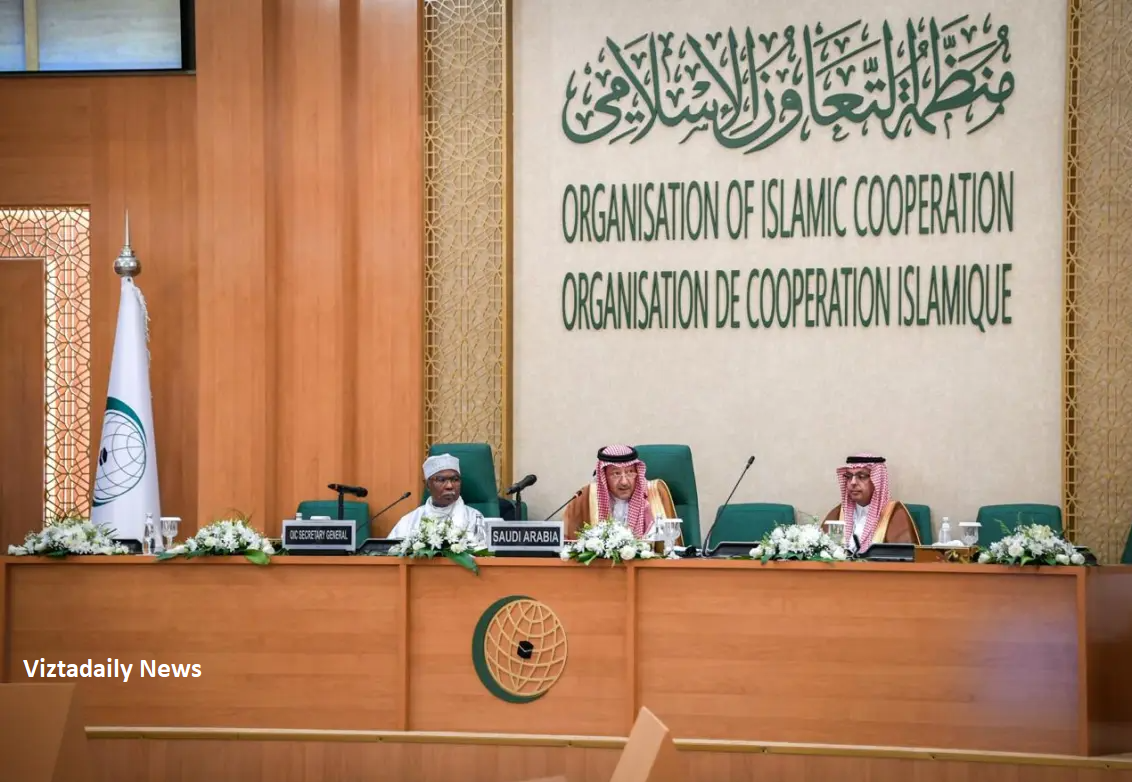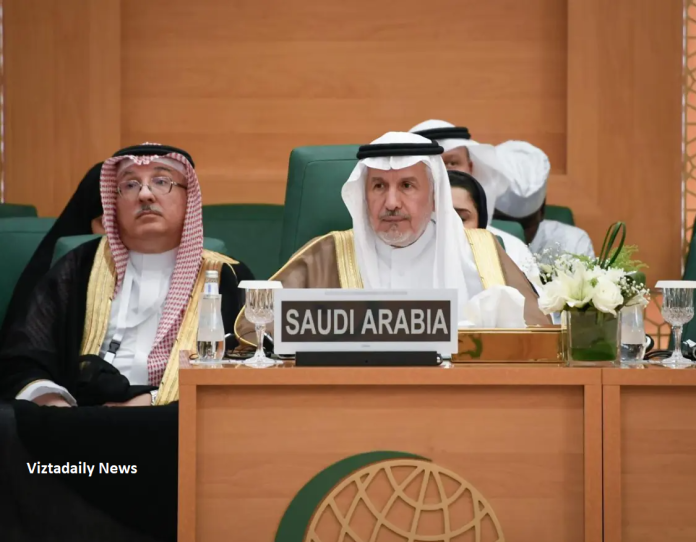In a remarkable display of compassion, Saudi Arabia recently hosted a groundbreaking donors’ conference through the King Salman Humanitarian Aid and Relief Centre (KSrelief), raising over $1.1 billion for displaced persons and refugees in the Sahel and Lake Chad regions.
This significant effort highlights the urgent humanitarian needs in these areas and reinforces the global call for solidarity with vulnerable communities.
The Sahel and Lake Chad regions continue to face escalating crises marked by armed conflict, environmental challenges, and economic instability.
Millions have been forced from their homes, with over 30 million individuals in dire need of assistance, many living in temporary shelters without basic resources like food, clean water, and healthcare.
The worsening situation demands immediate and sustained action from the international community.
Established in 2015, KSrelief has become a key player in addressing humanitarian crises both in the Middle East and globally.

The recent conference exemplifies its commitment to alleviating human suffering, providing immediate aid, and supporting long-term recovery efforts. It brought together international donors and organizations, fostering collaboration to mobilize resources for those in need.
The conference united leaders, representatives from various nations, humanitarian organizations, and NGOs, all focused on improving the lives of those affected by crises in the Sahel and Lake Chad regions.
Attendees engaged in discussions about the humanitarian landscape, challenges, and potential solutions, emphasizing the need to address causes of displacement, including conflict, climate change, and economic hardship.
A highlight of the conference was the impressive $1.1 billion raised, setting a precedent for international response efforts and showcasing the generosity of participating nations.
Substantial pledges underscored the collective responsibility to support displaced persons and refugees. The funds will be directed towards food security initiatives, healthcare services, and education programs, aiming to restore dignity and hope.

While the financial support generated is significant, sustaining and expanding these efforts is crucial. Long-term solutions necessitate immediate funding along with strategic planning and collaboration among stakeholders.
The international community must remain committed to addressing the root causes of displacement while providing necessary assistance to help affected individuals rebuild their lives.
Saudi Arabia’s donors’ conference exemplifies the power of collaborative humanitarian efforts. The $1.1 billion raised symbolizes hope, resilience, and a commitment to assist those in urgent need.
As we move forward, let this event inspire further collaboration, empathy, and proactive actions to support the most vulnerable, ensuring that the Sahel and Lake Chad regions are not overlooked.
Together, we can build a future where everyone has the opportunity to thrive, regardless of their circumstances.In the wake of this remarkable gathering, it is imperative to reflect on the broader implications of such humanitarian initiatives.
The success of the donors’ conference not only represents a financial commitment but also an awakening to the pressing realities faced by millions in the Sahel and Lake Chad regions. This moment serves as a clarion call for the global community to recognize its shared responsibility in addressing these humanitarian crises.
The collaborative nature of the conference illustrates a vital shift in how nations perceive their role in global humanitarian efforts. Each pledge made during the event was not just a monetary contribution; it was a commitment to a more compassionate world, where the plight of the displaced is met with empathy and action.
The partnerships formed and strengthened during this gathering can pave the way for innovative solutions that transcend mere relief and aim for sustainable development.
As we analyze the funding allocations, it is crucial to ensure that the resources are not only timely but also effectively implemented.
The response must adapt to the unique challenges posed by each community within the Sahel and Lake Chad regions, taking into account local contexts and the voices of those directly affected.
By empowering local organizations and communities as key stakeholders, we can foster resilience and enable lasting change.
Moreover, addressing the interlinked issues of climate change and economic instability in these regions is paramount. The funding raised can be channeled into programs that promote sustainable agricultural practices and create economic opportunities, helping communities not only to survive but to thrive.
This holistic approach will require a commitment from both donors and recipients to work hand in hand towards a common goal.
As we look to the future, the role of technology and innovation must also be highlighted.
Digital tools can enhance the effectiveness of humanitarian aid, improve transparency in fund allocation, and facilitate real-time communication between donors and those on the ground. Embracing innovative methods and technologies can optimize resources, ensuring that aid reaches those who need it most efficiently.
Ultimately, the commitment demonstrated at the donors’ conference should resonate beyond the immediate needs. It should ignite a passionate movement for human rights, dignity, and justice for all displaced persons and refugees.
The world must understand that today’s actions are crucial in shaping tomorrow’s realities. Every individual has the right to safety, stability, and the opportunity for a better life.
In conclusion, the generous outpouring of support and the commitment to aid the Sahel and Lake Chad regions marks not just an important event but a turning point in how the international community approaches humanitarian crises.
Let us build on this momentum, champion the cause of the vulnerable, and strive for a global society that prioritizes humanity at its core. Together, we can write a new narrative of hope, resilience, and shared responsibility, ensuring no one is left behind.



